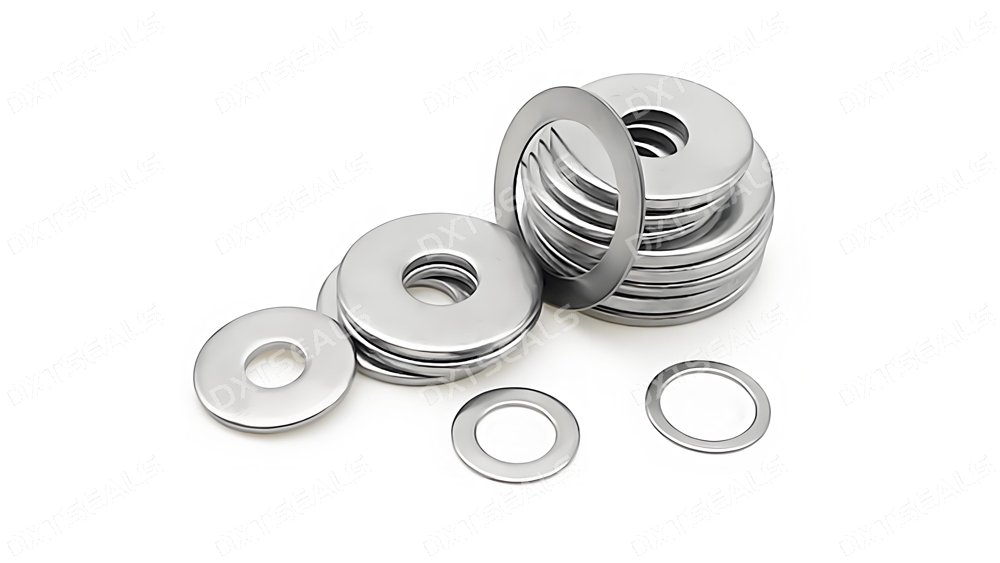
In high-pressure sealing systems, the choice of metal material plays a decisive role in ensuring durability, reliability, and safety. Among the most widely used metals are alloy steel and stainless steel, both offering unique advantages. But when sealing environments involve extreme pressure, temperature variations, and potential corrosion, which metal performs better?
This article from DXTSEALS provides a detailed comparison of alloy steel vs stainless steel and offers practical selection guidelines.
1. Alloy Steel: Superior Strength and Toughness
Alloy steels are carbon steels enhanced with additional alloying elements such as chromium, molybdenum, nickel, or vanadium.
-
Strength & Wear Resistance: Alloy steels are well-known for their high tensile strength, hardness, and excellent fatigue resistance, making them ideal for heavy-load sealing applications.
-
Advantages:
-
High mechanical strength and toughness
-
Excellent resistance to pressure-induced deformation
-
Cost-effective compared to high-grade stainless steels
-
-
Limitations:
-
Corrosion resistance is limited unless coated or treated
-
Requires protective layers (e.g., plating, painting, nitriding) in harsh environments
-
✅ Applications: Hydraulic cylinders, oilfield sealing components, high-pressure pumps.
2. Stainless Steel: Corrosion Resistance and Long-Term Reliability
Stainless steel contains at least 10.5% chromium, which forms a passive oxide film on the surface, providing outstanding corrosion resistance.
-
Strength & Durability: Austenitic and martensitic grades (e.g., 304, 316, 410, 420) can balance wear resistance with corrosion protection, making stainless steel ideal for high-pressure and corrosive sealing conditions.
-
Advantages:
-
Excellent corrosion resistance (especially in marine and chemical environments)
-
Stable performance under both pressure and temperature fluctuations
-
Long service life with minimal maintenance
-
-
Limitations:
-
Generally lower strength than alloy steel (except hardened martensitic grades)
-
Higher cost compared to carbon and low-alloy steels
-
✅ Applications: Flange insulation kits, chemical processing seals, marine sealing systems.
3. Comparative Performance Table
| Property | Alloy Steel | Stainless Steel |
|---|---|---|
| Tensile Strength | Very High (heat-treatable) | High (depends on grade) |
| Wear Resistance | Excellent | Moderate to High (martensitic > austenitic) |
| Corrosion Resistance | Limited (requires coating) | Excellent (especially 316, duplex) |
| Cost | Moderate | High |
| Typical Use | Hydraulic & mechanical seals | Chemical, marine & high-corrosion seals |
4. Which Metal to Choose for High-Pressure Sealing?
When selecting between alloy steel and stainless steel, the choice depends on the operating conditions:
-
High Pressure + Mechanical Load → Alloy Steel
If the primary challenge is mechanical strength and wear resistance under pressure (e.g., oilfield equipment, hydraulic cylinders), alloy steel is often the better choice, provided proper coatings are applied. -
High Pressure + Corrosive Environment → Stainless Steel
If the environment includes moisture, chemicals, or salt water, stainless steel is superior thanks to its corrosion resistance and stable sealing performance. -
Balanced Requirements → Duplex Stainless Steel
Duplex stainless steels combine the strength of alloy steels with the corrosion resistance of stainless, making them an advanced choice for demanding sealing applications.
5. DXTSEALS Recommendation
At DXTSEALS, we recommend:
-
Alloy Steel for cost-sensitive, strength-focused sealing systems where protective coatings are feasible.
-
Stainless Steel (304/316/410) for corrosive, high-pressure, and long-service sealing environments.
-
Duplex Stainless Steel for critical sealing systems that require both high wear resistance and corrosion protection.
6. Conclusion
Both alloy steel and stainless steel are suitable for high-pressure sealing applications, but their performance depends on the specific environment.
-
Alloy Steel excels in strength and wear resistance but needs protection against corrosion.
-
Stainless Steel offers superior corrosion resistance and stable performance under fluctuating pressures.
By understanding the differences, engineers can make informed decisions to balance strength, durability, and cost.
📩 Contact DXTSEALS today to get expert guidance on selecting the right metal for your sealing system.
